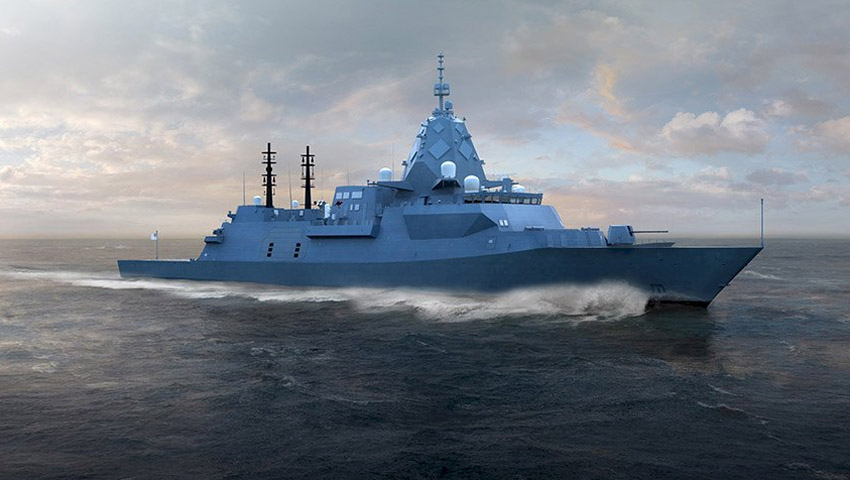The minister has responded to criticisms of the $45 billion project following what has been described as a “low level” internal assessment.
To continue reading the rest of this article, please log in.
Create free account to get unlimited news articles and more!
On Tuesday (1 February), findings from a classified ‘Engineering Team Assessment’ of the Commonwealth government’s $45 billion Hunter Class frigate program were leaked to The Australian.
The report, presented to the Department of Defence, suggested the next-generation BAE Systems-built anti-submarine vessels would be “substantially” slower than initially anticipated, operating across a shorter range and leaving ships vulnerable to detection.
The 36-page report, tabled in November, also raised crew safety concerns, claiming personnel could be trapped below deck by floodwaters in “credible damage conditions”.
However, Minister for Defence Peter Dutton has dismissed fears of a systemic issue with the project, stating the assessment is “only accurate in part”.
“…Unfortunately, the most important part has been left out, and that is that, yes, concerns are raised, but they are being addressed,” he told Sky News.
“When you look at the complexity of these programs — I mean trying to build frigates or submarines or putting together a helicopter fleet, the weapon systems, the millions of componentry parts and decision-making points — it’s quite phenomenal.”
Minister Dutton stressed there would always be “an element of risk” involved in major defence projects, acknowledging “things will go wrong”.
He also downplayed the weight of the assessment, describing it as a “low-level report”, which has been “exaggerated”.
“…the fact is that the concerns that have been raised are being addressed, and the Chief of Navy has been very clear about that,” he added.
Minister Dutton went on to acknowledge there may be further issues identified over the course of the program, including challenges associated with the integration of new technologies.
According to the minister, such issues have been baked into the $45 billion price tag for the nine next-generation frigates.
Minister Dutton ruled out project cancellation as an option, confirming Defence would not ditch the project in favour of a “plan B” alternative.
“[We] looked very carefully at this project and we've decided that we will proceed with it,” he said.
In a statement to Defence Connect, BAE Systems Australia revealed it is yet to receive a copy of the report.
But a company spokesperson stressed that identifying risks is “part of a normal design risk management process”.
“All large projects go through an engineering phase to identify and mitigate potential issues and we’re working to deliver the best outcome for our customer,” the spokesperson added.
“The Hunter Class frigate program is making strong progress towards the delivery of a superior anti-submarine warfare capability for the Royal Australian Navy.”
In October, the company completed the structural manufacture of the first steel prototype unit.
The 217 square metre steel unit, produced at Osborne Naval Shipyard in Adelaide, was moved from the shipyard’s primary manufacturing hall for the next phase of the production process, which involves outfitting and consolidation with three other units as part of the first prototyping block.
The Hunter Class program is currently employing more than 1,300 staff, including 35 apprentices and 26 graduates, and is tipped to create and sustain 5,000 jobs over the life of the program.
BAE Systems Australia, which secured the SEA 5000 contract in 2018, is scheduled to deliver the first Hunter Class frigate in 2033.
[Related: Local firms win Hunter Class contracts]

 Login
Login







